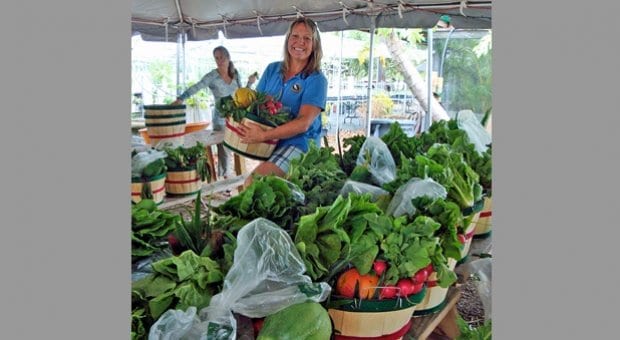
Chelsea Marando organizes bushel baskets of organic and pesticide-free produce, sourced from local farmers, for members of Marando Farms’ food-share program. Credit: Lesley Fraser
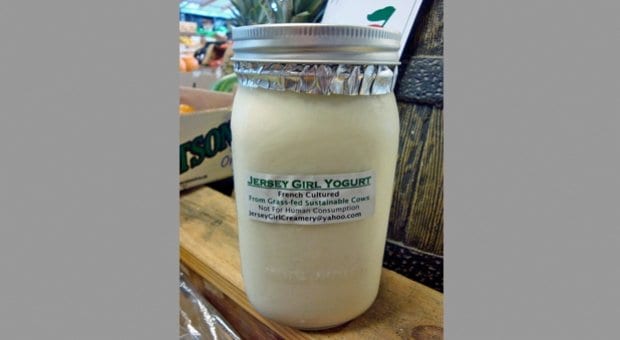
Jersey Girl’s raw-milk yogurt, available at Marando Farms, is labelled “not for human consumption” to get around state food laws. Credit: Lesley Fraser
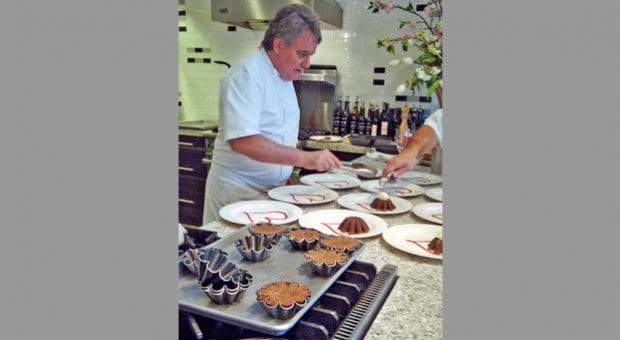
Vacationers pining for their kitchens should sign up for a class at Chef Jean Pierre’s Cooking School. Here, Chef plates his famous chocolate lava cake, which he introduced to North America on The Today Show. Credit: Lesley Fraser
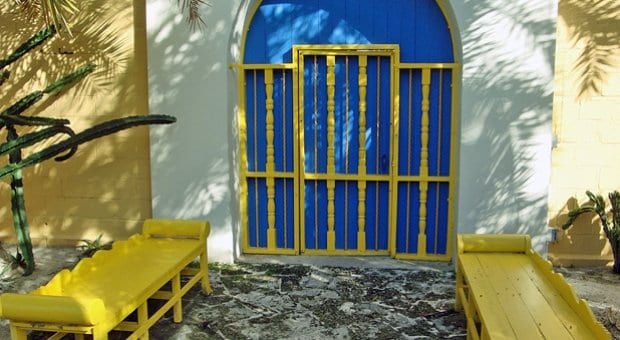
Bonnet House is a plantation-style mansion that offers an undeveloped look at old Fort Lauderdale. Credit: Lesley Fraser
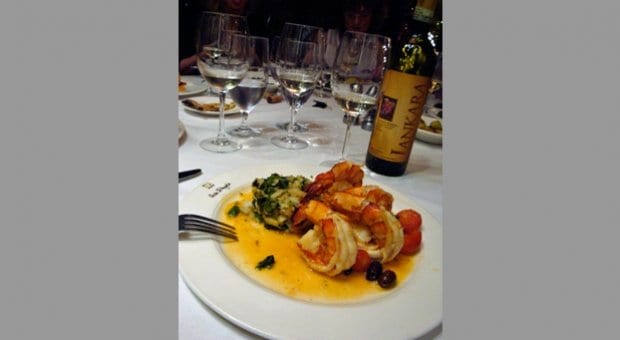
Chef Angelo Elia is the proud owner of both Casa D’Angelo and a winery in Sardinia. His crisp and fruity Jankara vermentino is the perfect accompaniment to his Tuscan-influenced menu. Credit: Lesley Fraser
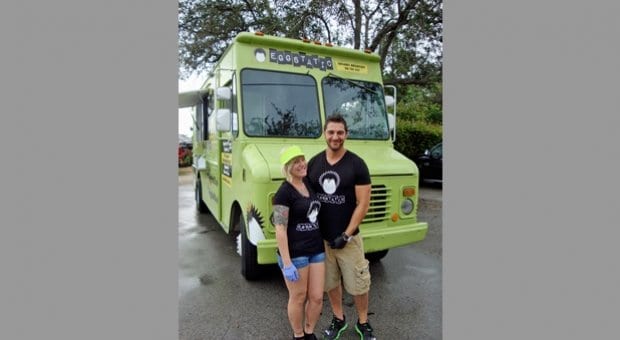
Eggstatic, the brain-child of Diana Lichter and Charles Massad, is the first and only breakfast truck in South Florida. Credit: Lesley Fraser
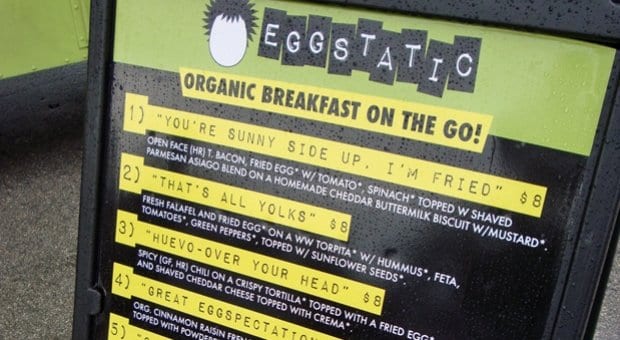
The Eggstatic food truck, which offers delicious organic breakfast on the go, can be found parked outside Marando Farms’ gate most mornings. Credit: Lesley Fraser
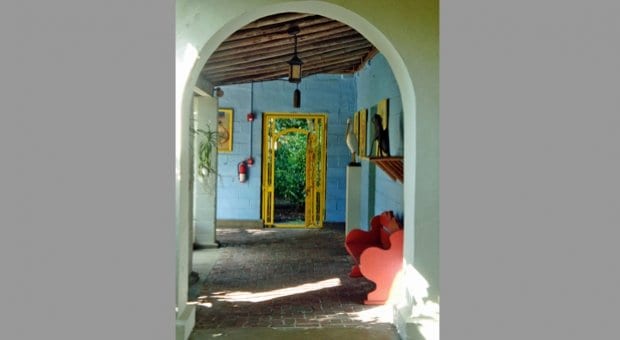
The colourful Bonnet House museum is a welcome respite from Fort Lauderdale’s high-rises and condos. Credit: Lesley Fraser
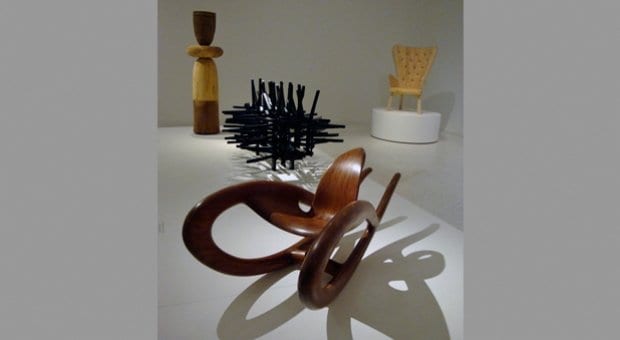
The Fort Lauderdale Museum of Art is home to a permanent collection of more than 6,000 artworks and an impressive range of rotating, well-presented exhibits. Credit: Lesley Fraser
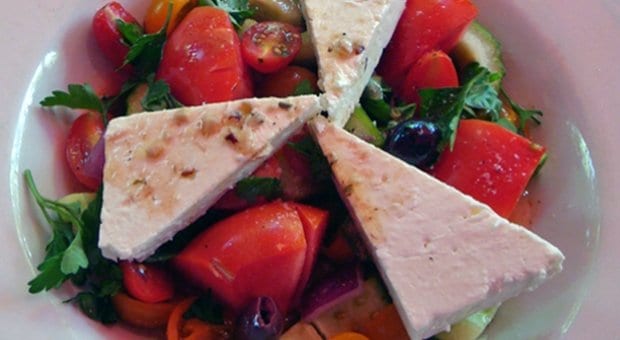
The hip YOLO, on Las Olas Boulevard, serves contemporary American cuisine in a sophisticated, bustling environment. Credit: Lesley Fraser
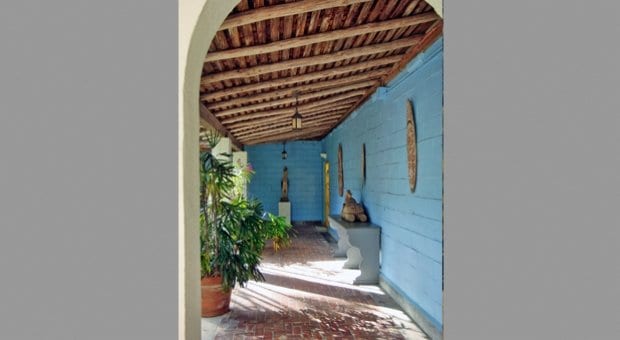
The fully restored Bonnet House museum offers a window into Fort Lauderdale’s beginnings. Credit: Lesley Fraser
Two surefire ways of measuring a town’s sophistication are by counting its gay residents and surveying its food scene. By both measures, Fort Lauderdale is doing very nicely, thank you. But every article one reads about the city mentions its reputation, sealed in the mid-1980s, as a spring-break mecca (see? it’s unavoidable). Maybe that’s not such a bad thing, though, since visitors to Lauderdale get to cash in on its decades-long effort to prove it’s more than just party central for out-of-control college kids.
LGBT travellers, of course, have long been savvy about Lauderdale’s charms. After all, it is the US city with the highest concentration of gay couples, according to the most recent census, and the Wilton Manors area (technically a separate city, but not many tourists think of it that way) was named 2013 gaybourhood of the year by travel magazine Man About World. But even we could stand to step off the beaten gay path to see what else is going on in this sophisticated Gold Coast city.
What to do
The Bonnet House Museum is a welcome respite from the development that blankets Fort Lauderdale. This quirky, colourful plantation-style mansion, next door to Hugh Taylor Birch State Park, was built by Birch’s son-in-law, artist Frederic Bartlett, in the early 1900s. Its expansive grounds offer a glimpse of unspoiled Florida: high, brackish water along an undeveloped seawall; the bonnet lilies the house is named for; mangroves and wildlife; the four monkeys left of the more than 80 that once lived there.
Stranahan House Museum offers another window into Fort Lauderdale’s beginnings. Built as a trading post in 1901 and converted into a private residence for the town’s founding father in 1906, it’s the oldest surviving structure in Broward County.
The Museum of Art is home to a permanent collection of more than 6,000 artworks and an impressive range of rotating, well-presented exhibits. The Movement: Bob Adelman and Civil Rights Era Photography and Spirit of Cobra, featuring works from the Cobra Museum in the Netherlands, are on display until mid-May 2014.
Fort Lauderdale, with its 500 kilometres of waterways, is nicknamed the Venice of America, making it a delight to explore on foot or by bike (available through the local bike-share program, Broward B-Cycle). An even better option is the Water Taxi; with 10 stops and a jump on/jump off pass (allowing easy access to the Riverwalk Arts and Entertainment District), it’s a great way to take in the opulent mansions along Millionaires’ Row (as seen in this video) and the jaw-dropping yachts moored out front. At one point, the operator will tell you, Sonny and Cher lived next door to the Bronfmans. Watch for the Bonnet House’s undeveloped seawall, a striking juxtaposition to the otherwise highly manipulated waterfronts.
Anyone with even a passing interest in the locavore food movement will want to stop into Marando Farms. After Chelsea Marando and her husband, Fred, lost their construction-related jobs to the tanking economy, they decided to pursue a different calling, driven by their desire to buy from and support local farmers rather than the local Winn-Dixie. It’s taken them several years to make a go of it, but now their sprawling compound includes community garden plots; a market that offers organic and pesticide-free produce, meat and raw-milk dairy products (labelled “not for human consumption”) sourced from local suppliers; a food-share pick-up point; a pet supplies store; a juice bar; a bakery; educational programs; rescued farm animals; a nursery, including a medicinal garden built by nursing interns; working beehives; and an elaborate aquaponics set-up in which plants and fish are cultivated in a symbiotic environment. No doubt when they have time, they’ll get to work saving the coral reef.
Where to dine
The Eggstatic food truck, offering organic breakfast on the go, is parked outside Marando Farms’ gate most mornings, so plan accordingly. The first and only breakfast truck in South Florida, it’s the brain-child of Diana Lichter, who started it with her partner Charles Massad not quite a year ago so that, as vegetarians who want to eat responsibly, they’d have somewhere to go for breakfast. All their produce is organic or non-GMO, all their meats are humanely raised using no hormones or steroids, all their utensils are naturally derived and compostable, and all their food is delicious.
Just-arrived vacationers would do well to land at the low-key and personable Coconuts for their first meal, both for its food and its symbolism. Located on the dockside property that 60 years ago was home to the two hotels that launched the spring-break phenomenon, it claims to carry on the tradition in a “much more subdued and sophisticated fashion,” with a focus on fresh seafood and comfort food. Be sure to order the house-specialty scoobies: blue crab pinchers sautéed with oil, chili and garlic.
A more swish experience can be had at Casa D’Angelo Ristorante, which is rammed with fashionable types on weekends — oddly, it’s located in a strip mall, which some city folks might find strange, but Floridians seem fine with. Owner Angelo Elia’s seafood-heavy, Tuscan-inspired menu is nicely complemented by his Jankara vermentino, of which he is the proud maker, having recently acquired the Sardinian winery. If you visit in late fall, be sure to order the ethereal fettuccine with butter and generous shavings of Piedmont truffles. Elia also operates the popular D’Angelo pizzeria and wine bar in Lauderdale and Delray Beach.
The Las Olas hotspot YOLO, next door to O-Lounge (as seen in the linked video), is hip and huge, with seating for 300, an open kitchen, two bars, lots of room for the piles of cedar and oak used for their wood-fired grill (the oak-smoked artichokes with lemon aioli are terrific), and an enormous garden patio set back from the street. After Sunday brunch, browse the various vendors’ tables at the outdoor market just outside before strolling along Lauderdale’s “style mile.”
The East End Brasserie, in the Atlantic Hotel, is overseen by Jeff Vincent, a Southerner influenced by stints in Portugal and Spain. In spite of the French-sounding name, the focus is predominantly local, with chef Vincent’s “scratch kitchen” turning out hand-stretched mozzarella, house-pickled vegetables and farm-to-table foods sourced from local fishermen and farmers (when he can’t get what he needs in Florida, he calls suppliers in Georgia and South Carolina). The drinks program has a similar philosophy: local Flying Buddha beer, vodka made from Flordida oranges, and four kinds of cachaça reflect the “Floribbean” setting. Save room for a scoop of pastry chef Donna Silverthorn’s excellent ginger beer ice cream.
Vacationers pining for their kitchens and tiring of passively receiving plates sent out from restaurant kitchens should sign up for a class at Chef Jean Pierre’s Cooking School. This native of Marseille ran a local boite for 22 years but got tired of the hours; instead, he’s opted to teach six nights a week, with help from his stalwart sous chef, Bradley. Students of a certain age might recognize him from his 20-plus appearances on The Today Show, on which in 1978, he claims, he was the first to introduce the molten chocolate cake. His recipes are decidedly un-trendy, but his knowledge is substantial, his teaching skills terrific, and his comic timing impeccable. After class, be sure to check out the housewares and kitchen utensils for sale in the adjacent shop and sample the oils and vinegars from the tasting bar.
You be the judge as to whether Mai Kai’s faux-Chinese menu is your cup of tea, but any queer with even a hint of the camp gene will drop in for at least a drink, if not the whole dinner-and-Polynesian-floor-show package. Opened in 1956 (the most expensive restaurant opening that year; at its peak it sold more rum than any other American restaurant), Mai Kai, the last original tiki joint in the US, was hit hard by the recession but is now benefiting from a resurgent interest in mid-century tiki culture. The peak experience is the ritualistic serving of the $39 Mystery Drink, which comes with four straws.
Where to stay
The independently operated Atlantic Spa and Hotel, a member of Preferred Hotels & Resorts, is a luxurious beachside property with 124 spacious guestrooms and 54 suites (including a gorgeous 3,500-square-foot penthouse, with private elevator) that overlooks the ocean and the green expanse of Hugh Taylor Birch State Park. (Next door in the other direction is the creepy and enormous Trump Hotel, built eight years ago and never used.) The Atlantic opened in 2004 and changed ownership in 2012, and like the town it’s located in is in the process of rebirth. Stylish and contemporary, gracious and intimate, it epitomizes Southern hospitality and modern-day convenience, with its 24-hour fitness centre and concierge service. The exclusive Euro-style spa has eight private treatment rooms and full massage and aesthetic services.
For the most up-to-date travel information on gay Fort Lauderdale, see our City Guide, Listings Guide, Events Guide and Activities Guide.
For the most up-to-date travel information on nearby gay Miami, see our City Guide, Listings Guide, Events Guide and Activities Guide.
For more info on Fort Lauderdale, visit sunny.org.
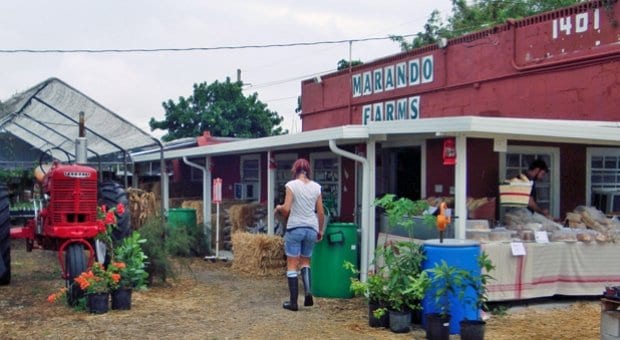
 Why you can trust Xtra
Why you can trust Xtra